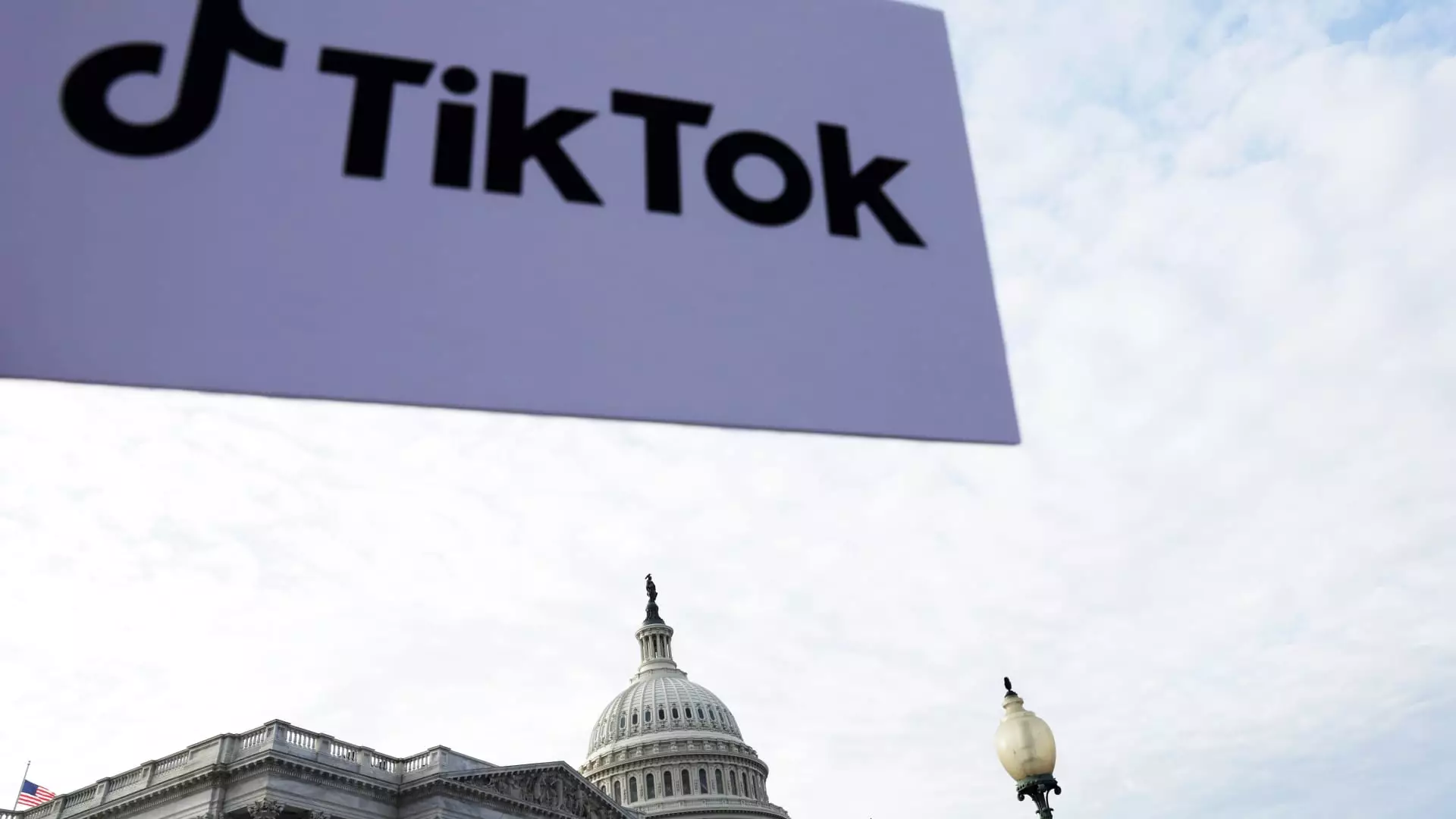In a high-stakes move that could reshape the landscape of social media and commerce, members of the House Committee are pressing the leaders of two tech giants—Apple and Google—to prepare for compliance with a controversial law poised to potentially ban TikTok from U.S. platforms. This initiative stems from a legal decision that has revived intense debates around national security concerns, free speech, and the dynamics of tech regulation, all of which have profound implications for users, businesses, and the broader digital ecosystem.
The lawmakers, Reps. John Moolenaar (R-Mich.) and Raja Krishnamoorthi (D-Ill.), dispatched letters to Apple CEO Tim Cook and Alphabet CEO Sundar Pichai, emphasizing their obligations as app store operators in the wake of a D.C. Appeals Court ruling. This ruling reaffirmed a law mandating that ByteDance, the Chinese parent company of TikTok, divest its interests in the app by January 19. If this divestiture does not occur, the legislation mandates that both Apple and Google remove TikTok from their platforms, highlighting an explicit shift in accountability from the application to its hosting platforms.
The lawmakers impressed upon the tech executives that under current regulations, it would be unlawful for their companies to provide distribution services for an application deemed a foreign adversary. This pivotal moment raises questions regarding the nature of corporate responsibilities in upholding national security and safeguarding user data, forcing technology companies into unprecedented positions of governance in digital platforms.
Concerns Over National Security
The congressional push comes amid persistent allegations that TikTok could pose a threat to U.S. national security, primarily due to its Chinese ownership. The legislation and subsequent appeals court ruling were designed with the aim of averting potential data misuse or surveillance that critics argue could arise from a foreign-controlled app. As articulated in the lawmakers’ correspondence, Congress had afforded TikTok an ample window—233 days—to adhere to compliance requirements and rectify its regulatory standing.
The stringent timeline reflects a growing impatience within the government regarding how foreign apps operate within American borders, especially in light of escalating geopolitical tensions. Critics of TikTok argue that the urgency of the law is necessary for national safety, while supporters contend that these measures could have sweeping repercussions on digital freedoms and user privacy rights.
TikTok’s response to the legislation has been vehement, with the company branding the law unconstitutional. The platform claims it violates the First Amendment rights of its estimated 170 million U.S. users. TikTok’s legal team has swiftly actioned appeals, with an emergency motion filed to halt the impending ban until the U.S. Supreme Court has an opportunity to review the case. In a strategic pivot, TikTok emphasizes the potential economic fallout of a ban—projecting a staggering loss of $1.3 billion for American small businesses and social media creators, should the ban take effect.
This economic framing highlights the intersection of legal, political, and financial implications of such a ban. Influencers and creators who rely on TikTok as a primary source of income are anxious, drawing attention to the potential job losses and disruptions in an already fragile economic landscape exacerbated by the COVID-19 pandemic.
The situation becomes perplexing when considering the change in tone from political leaders regarding TikTok. For instance, President-elect Donald Trump’s past aggressive stance against TikTok gave way to more ambiguous rhetoric after he met with billionaire investor Jeff Yass, a major stakeholder in the app. Such entanglements illustrate the complexities of political influence, investment interests, and public policy—conjuring images of shifting allegiances where personal interests may cloud legislative integrity.
The discussions surrounding TikTok encapsulate larger dialogues on tech regulation, free expression, and market equity. As these tech conglomerates face mounting pressure to adhere to legislative edicts, the balance between government oversight and corporate autonomy will undoubtedly evolve, paving the way for critical conversations about user rights and digital marketplace integrity.
The potential for a TikTok ban in the U.S. transcends a singular app’s fate; it beckons a rigorous examination of the intersection between technology, policy, and human rights in a rapidly evolving digital world. The outcomes of these discussions will resonate well beyond the realm of social media and could redefine the contours of digital commerce in the years to come.

